COVID-19 Pandemic Has Not Slowed the Pace of Campaigning in Baltimore City Council District 10
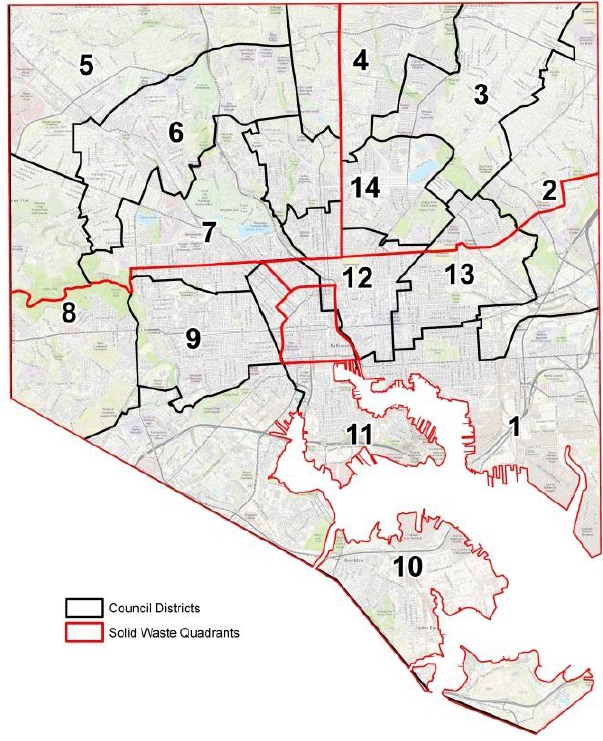
As with most things in Maryland, COVID-19 derailed the state’s primary election, leaving many campaigns scrambling to reach voters from a safe distance for an additional five weeks.
The candidates vying for seats in the major political turnover underway in Baltimore City this election cycle are not an exception.
Baltimore City Council’s District 10, in the southwest part of the city, is getting a shake-up, as Councilman Edward C. Reisinger (D) announced he was relinquishing his seat after a quarter century.
With 11 hats in the ring, front-running candidates in the Democratic primary say the district is ready for a change, and that the pandemic has made them rethink the way they reach voters.
Natasha Guynes said she has ditched door-knocking and hand-shaking for phone canvassing, but admits that she still gets some face time with voters who ask her to drop walk cards off at their doors to share with neighbors. She’s also kept busy in the community, partnering with ex-mayor Sheila Dixon (D), who is trying to get her old job back, for a food delivery drive held earlier this month.
“We are out,” Guynes said. “I am trying just to get things done in a safe way — knocking doors is not it.”
The small interactions she does have with district voters pack a big punch.
Guynes explained that sometimes when she drops off walk cards, residents share stories with her about their recovery from addiction — something she is privy to and very open about.
After growing up impoverished in Shreveport, La., born to a teenage mother and abusive father, Guynes moved to Washington, D.C., where she engaged in sex work and grappled with homelessness and addiction.
Guynes said that the people she interacted with in Alcoholics Anonymous rerouted her trajectory. She graduated from Trinity University with a degree in political science and served in Americorps before moving on to Capitol Hill, where she worked in multiple Senate offices, notably that of former majority leader Harry Reid (D-Nev.).
Guynes moved to Baltimore when she was pursuing her master’s degree in public administration from the University of Baltimore just a few years ago. She currently lives in Pigtown.
Her campaign has garnered endorsements from notable Annapolis politicians like state Sen. Mary L. Washington (D-Baltimore City) and Comptroller Peter V.R. Franchot (D).
Guynes said that the “only real criticism” her campaign has received is that she isn’t “Baltimore enough,” which she vehemently disputes.
“When I door-knock down in Brooklyn, it looks just like the neighborhood I grew up in. There’s no difference,” she asserted. “I have an inherent understanding at a level that no one I’m running against can get, and you can’t teach that.”
Guynes said her campaign thrives on her connection with fellow District 10 residents, like Natalie Johnson.
Johnson met Guynes as she door-knocked through her neighborhood and was immediately sold just based on their conversation.
“I’ve never voted,” Johnson told Maryland Matters in a phone interview. “I’m 54 years old, I hate to say, but I’ve never voted a day in my life. And she’s gonna be the first person that I’ve ever voted for.”
Guynes also has a good rapport with the city’s “squeegee kids”: buying them cold drinks in the summer and hot ones in the winter, giving them rides home, helping them workshop resumés — even hiring them to work her campaign.
Guynes said that the advocacy work she has done has built a great foundation for her understanding of the young men who wash windshields at street corners. So when the head of T. Rowe Price wrote Mayor Bernard C. “Jack” Young (D) a letter asking him to take action against the squeegee kids, she responded to the company with her own three-part plan, which she said led to a meeting with top officials.
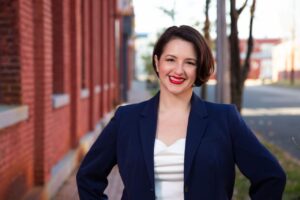
Photo courtesy of Natasha Guynes.
Guynes told Maryland Matters in a phone interview that she’s gone so far as to connect some needy individuals with rehabilitation services at Divine Light Baltimore Drug Addiction Treatment Center — an organization her own nonprofit, HER Resiliency Center, works with regularly.
HER Resiliency Center women’s resource hubs, based in Baltimore and D.C., serve up to 300 women aged 18 to 25 every year.
Guynes explained that while connecting people to these resources isn’t typically considered “constituent services,” she feels that they should be readily available to the residents of District 10.
“These are all responsibilities of … the representative and we need somebody who knows how to connect the dots,” she said.
Asked what the district’s most pressing issues are, Guynes pointed to infrastructure, economic stimulation and pollution, rolling almost immediately, as she does, into a story about another constituent interaction.
Guynes spoke with a woman who had 13 dead rats in her backyard and couldn’t find an agency willing to pick them up. The resident couldn’t open her windows because of the terrible smell. Guynes said this isn’t just an issue of trash, but health.
“I got to tell you if I was in that city council seat and she called me, somebody was going to be handling that because that impeded on her ability to enjoy her life,” Guynes said.
“I don’t know how not to do. I’m just gonna tell you that right now, there is a gap to be filled,” she explained. “I’m going to fill it, and it’s going to get done.”
‘Haven’t skipped a beat’
District 10 candidate and public health policy expert Phylicia Porter (D) said that she shut down in-person campaigning immediately after the pandemic’s onset, which she said she’s viewed as an opportunity to empower voters for the upcoming election.
She even created voter guides, which are available for download on her website and social media platforms.
Turning to phone banking and other measures, Porter says her campaigners “haven’t skipped a beat,” and she enjoys the support of major community stakeholders like state Sen. Antonio L. Hayes, Progressive Maryland, The Baltimore Sun and Reisinger, the departing council member.
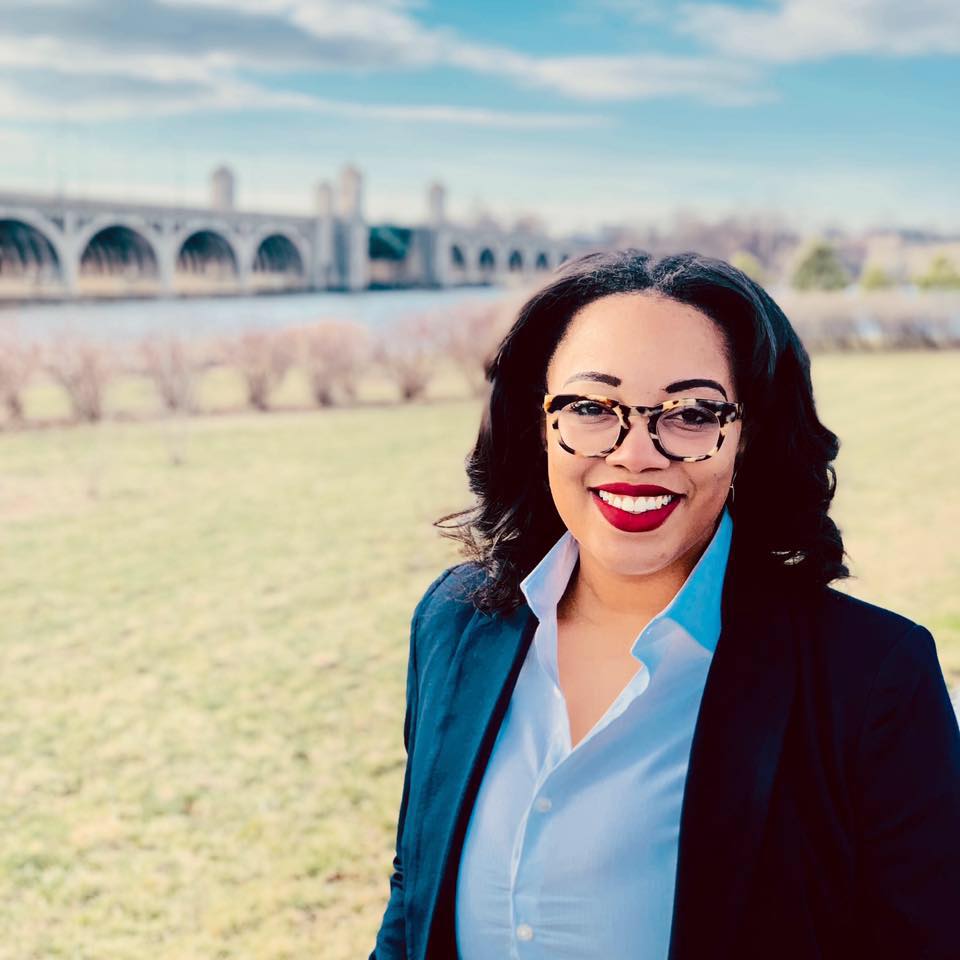
Phylicia Porter. Facebook photo
“You know, first and foremost, I’m a public health practitioner and so the health and safety of District 10 residents, is, is much more important than any, you know than any type of, of vote … that I’ve been trying to get over the past two years that I’ve been running,” she said.
Born and raised in the city, Porter has deep roots in Baltimore.
She received two bachelor’s of science degrees from Towson University, a master of public health degree from Morgan State University and a master of science in law from the University of Maryland.
She currently holds a management position at Optimal Public Health Solutions, serves on the Baltimore Democratic State Central Committee, is the Vice Chair of the South Baltimore Gateway Partnership and serves on the Census 2020 Baltimore City Complete Count Committee.
She said she’s been engaging in community service in Southwest Baltimore for about seven years.
Asked what she sees to be some of district 10’s greatest shortcomings, Porter points to escalating crime rates, floundering economic opportunity and illegal dumping.
Porter told Maryland Matters that Southwest Baltimore has some of the highest rates of 311 calls, which signal non-emergency complaints — according to Baltimore’s 311 website, District 10 alone places over 3,800 each month.
A first-time homeowner, Porter said that she chose the block she currently lives on because she wants to get its rampant illegal dumping issues under control. She called her effort to remove trash from the street an “educational campaign.”
“So again, that’s an educational campaign where we’re talking about educating people on the importance of not illegal dumping, and if you do have bulk trash items, how can I as a city representative — as a local councilwoman — make sure that we get those items to the proper … stations so that they are discarded properly, and if they’re recyclable [that] they are recycled in the proper way,” she said.
Porter is running on a “building healthy communities” platform. Its four tenets are:
- A “holistic approach” to public safety, encompassing both prevention and enforcement
- Adequate constituent access to public services like 311
- Increased funding and program support for district public schools
- Enhancing the district’s economic climate for small businesses
“These are the four things after much, you know, talking with community leaders, after much talking with business stakeholders, after much talking with local government officials: these are the four tenets that District 10 needs in order to be successful,” she said.
Porter said she’s running because the district is “headed in a very, very different direction” than it was under Reisinger.
“Baltimore is at a very, very interesting intersection,” she said, “and when you have, you know, up-and-coming areas like District 10, we want to make sure that we’re still keeping the same, you know, I call it the ‘Baltimore culture.’”
Porter said it’s integral to maintain the “Baltimore Culture of Pigtown” and the “historical ramifications of Cherry Hill, Westport and Lakeland” as the city evolves, and that their council representative has a clear vision of how these places will fit into the changing city down the line.
She said that running for the District 10 council seat isn’t just a matter of it being “her time,” but making sure that her neighborhoods are “in line” with others across the city and getting their “fair share.”
“A lot of candidates are talking about it’s ‘their time,’ but what’s your plan when you get into office?” she asked. “I want my generation down the line to still live in Baltimore, to still be proud of Baltimore and for Baltimore to actually be a great place to live and thrive and just be the best version of you possible.”
‘As grass-roots and organic as it comes’
Another Democratic candidate, Keisha Allen, said that COVID-19 has provided “some challenges and some unexpected opportunities” for her campaign.
While she misses in-person events like every other candidate, Allen said phone banking and email blasting has been “just as productive” as canvassing, that she’s garnered new supporters, and has even found that some people recognize her from advocacy work she’s engaged in over the past decade.
Allen did say that fundraising for the extended campaign has posed minor difficulties, joking that this isn’t how she thought she’d be spending her time.
“You know, we thought we’d be done by now, I thought I’d be on a beach somewhere, like, this is happening,” she laughed.
Allen grew up in Anne Arundel County before moving to the Baltimore City area.
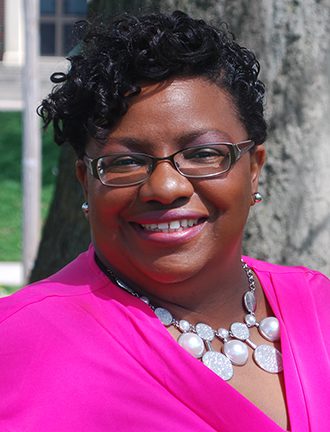
Keisha Allen. Campaign photo
She is the Westport community association president, the chairperson of the board for the Westport Community Economic Development Corporation and has served six consecutive terms as a member of the Baltimore Local Development Council. She currently works in health care administration.
Allen says she kind of “fell into” community leadership almost 11 years ago.
“I am as grass-roots and organic as it comes,” she said. “It’s that neighbor who stepped off of her steps to get involved.”
Allen has been a resident of District 10 for 12 years, and as a tenured resident, she finds the environment to be her top concern: air and soil quality, medical waste and “the leftovers or the remnants from those things” that she says are destroying the district’s property values.
Allen wants to see those devastated neighborhoods and others on the brink of being redeveloped get a “grip on some of this environmental damage”; to regrow and re-purpose communities that are grown-over or have been long forgotten about; and to “revitalize” main streets that have languished because of the lack of a strong political presence.
“We’re on this very forgotten tip of the city that a lot of people just don’t know about, and even some of our leaders couldn’t even get here without a GPS because they just don’t know the area,” she said.
A co-founder of the SB7 community organization, Allen has advocated for a cleaner environment in District 10 for a while now, pushing to have the trash incinerator on Russell Street removed, working to create a community land trust and attempting to adjust the district’s zoning policies so residents can learn to better co-exist with industry.
Allen also helped to negotiate a $39 million community benefits agreement with Sagamore Development Co. in 2016 to keep its major development project in District 10’s Port Covington neighborhood accountable to residents of neighborhoods like Brooklyn, Cherry Hill and Westport.
Allen was afraid that she and her neighbors might be displaced. She explained that Baltimore City has a history of giving developers “carte blanche” to do whatever they want because they have money and political pull.
After attending a meeting where the development project was pitched, Allen said that she and a handful of other neighborhood leaders hopped on the phone to devise a plan.
“And so we were saying ‘OK, that’s fine, you can build whatever you want — we can’t stop you, but we want a community benefits agreement. We want to ensure in writing that your intentions are pure, your intentions are honest and that you will also help us out,’” she said. “How can you help us be successful while you accomplish your goal?”
After nearly six months of negotiations, her small coalition hired pro bono attorneys and ended up with a $39 million deal, which Allen said freaked her out.
“I think that’s the one thing that scared the crap out of me because you know like, again, I work for a hospital system — I’m not a professional negotiator,” she said. “I can’t say I went to Yale or Harvard. You know, we just worked it out.”
Allen said she’s running now because the district is at a “turning point.”
“For the last 10 years, along with, you know, myself and key leaders, we’ve done a lot of work that many of our elected officials over time … have neglected us on.”
She said the “next best place she can be” is on the city council, where she can do this work “from the inside.”
“I’ve helped; I’ve built. And now it’s time to help create, you know, move our district forward,” she said.
Allen said it’s time for someone rooted in the community to lead it, adding she wants to “end this notion of ‘We here on this side of the Hanover Street Bridge should not and cannot be in politics and that we cannot lead our communities’ … you know, at City Hall, or at the State House.”
“It would be a cold day in Hell if South Baltimore leaders went over to East or West Baltimore, or Montgomery County and tried to get in office,” Allen said. “They take advantage of us.”

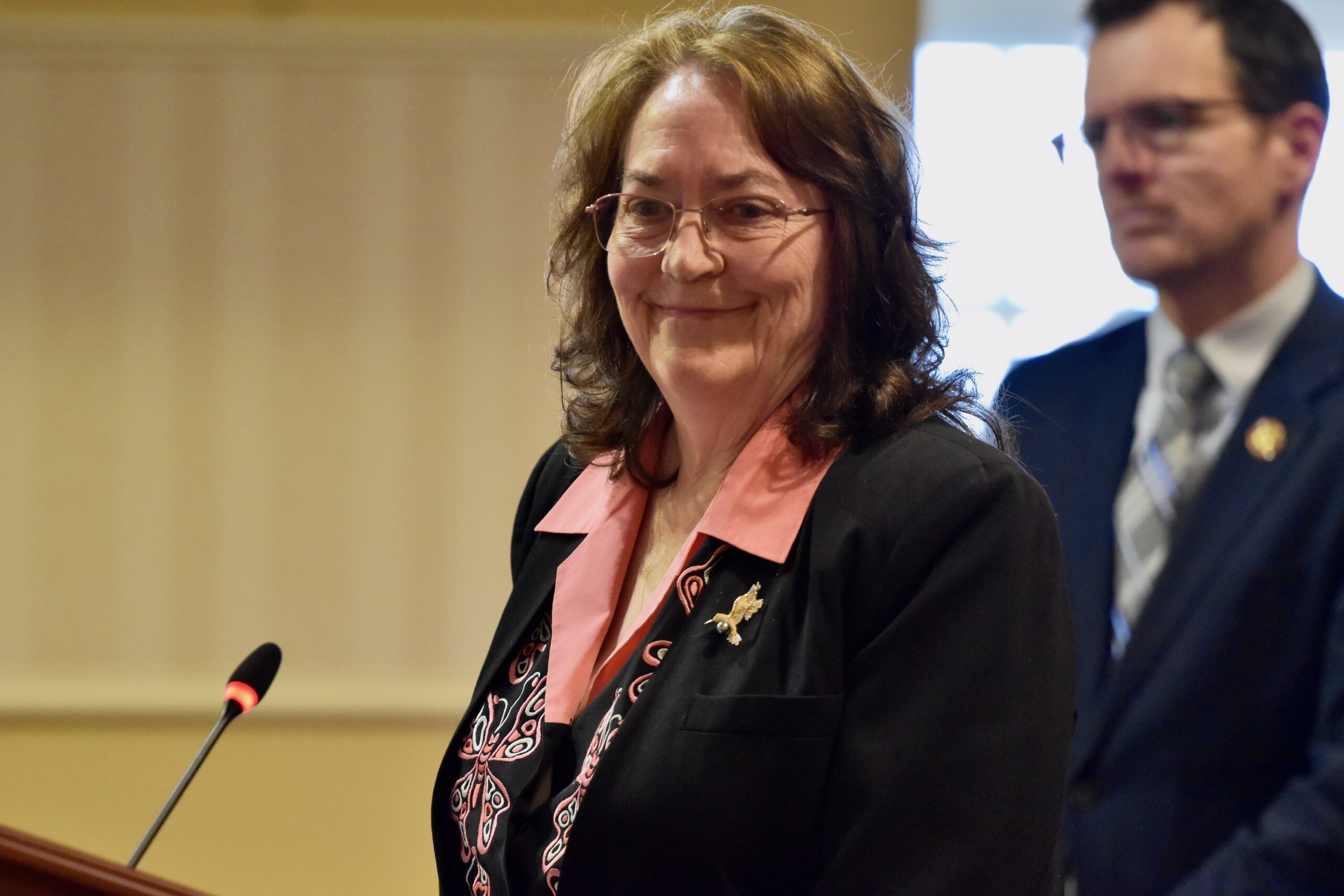
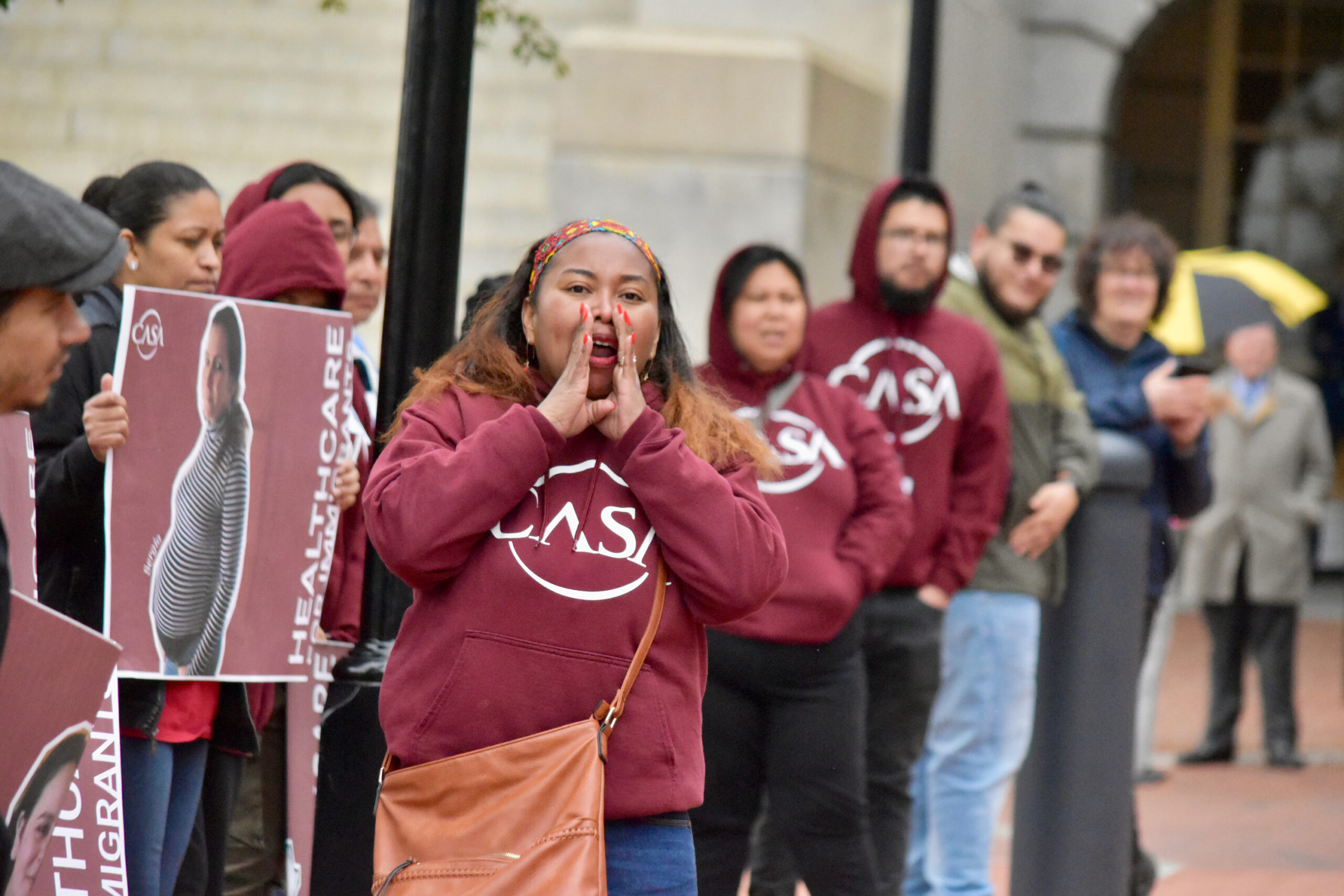
 Creative Commons Attribution
Creative Commons Attribution